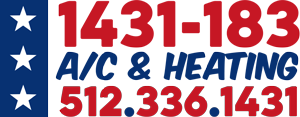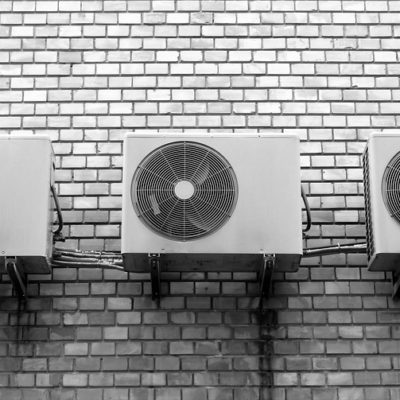Contrary to what many homeowners believe, a bigger AC unit isn’t always better.
The size of an AC unit is typically measured in British Thermal Units (BTUs). BTU refers to the amount of heat required to change the temperature of 1 pound of water – at maximum density – by 1 degree.
High-BTU AC units are able to remove heat from the air faster and with greater ease than low-BTU AC units.
But don’t let that fool you into thinking a bigger unit is right for your home.
Premature Wear
Oversized AC units are more likely to suffer from premature wear, as well as failure, than their appropriately sized counterparts.
If your AC unit is too big for your home, it will frequently cycle on and off.
For example, when you adjust the thermostat to a lower temperature, the oversized AC unit will respond by quickly cooling the air until it reaches this temperature, after which it will shut off. As the temperature rises back up, the AC unit will turn on.
All of this on-and-off cycling takes a toll on an AC unit’s internal components, resulting in premature wear.
High Humidity
In addition to premature wear, an oversized AC unit can cause high indoor humidity.
AC units don’t just remove heat from the air; they remove moisture vapor as well. Oversized AC units, however, remove heat too quickly.
Once the oversized AC unit has cooled your home, it will shut off, at which point it won’t remove moisture from the air.
The Cost
As you may know, bigger AC units cost more than smaller AC units.
However, it’s also worth noting that oversized AC units cost more to operate than smaller, more appropriately sized units.
We’ve already discussed how oversized AC units cycle on and off more frequently than their appropriately sized counterparts.
Well, each time an AC unit cycles on and off, it consumes power – and not just a small amount. A significant amount of the power consumed by AC units comes from cycling.
By choosing an AC unit in the right size, it will cycle less frequently, which may manifest in the form of less-expensive utility bills.
In Conclusion
To prevent problems such as these, you need to choose an AC unit that’s appropriately sized for your home.
The Energy Star website offers a chart that you can use to find the correct size based on your home\’s square footage. Alternatively, you can contact a professional heating, ventilation and cooling (HVAC) specialist to inspect your home.
If you are experiencing a problem with your air conditioning system call us at 512-336-1431 to schedule an appointment. We’ll be glad to come out and take a look at the issue.
1431-183 A/C & Heating proudly serves Round Rock, Georgetown, Cedar Park, Pflugerville, Leander, Liberty Hill, and North Austin.

